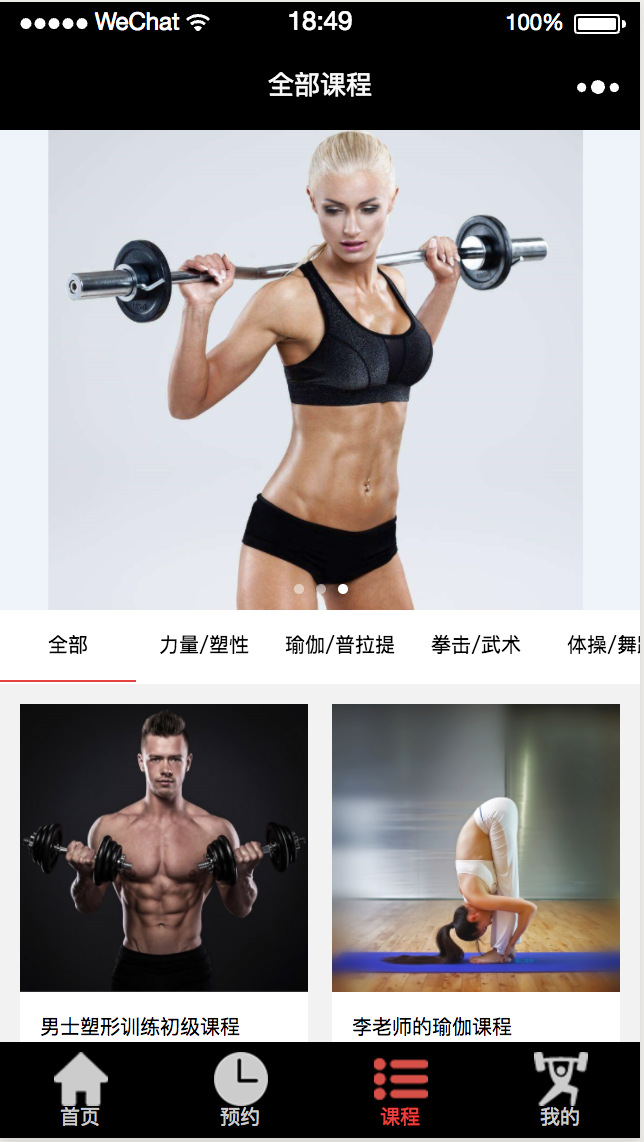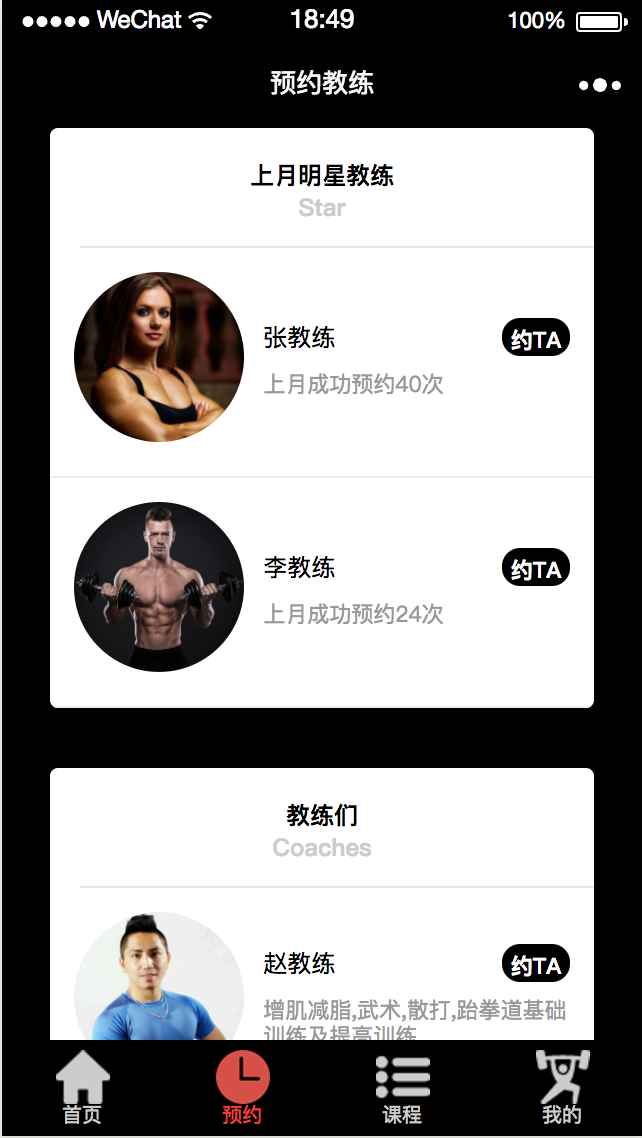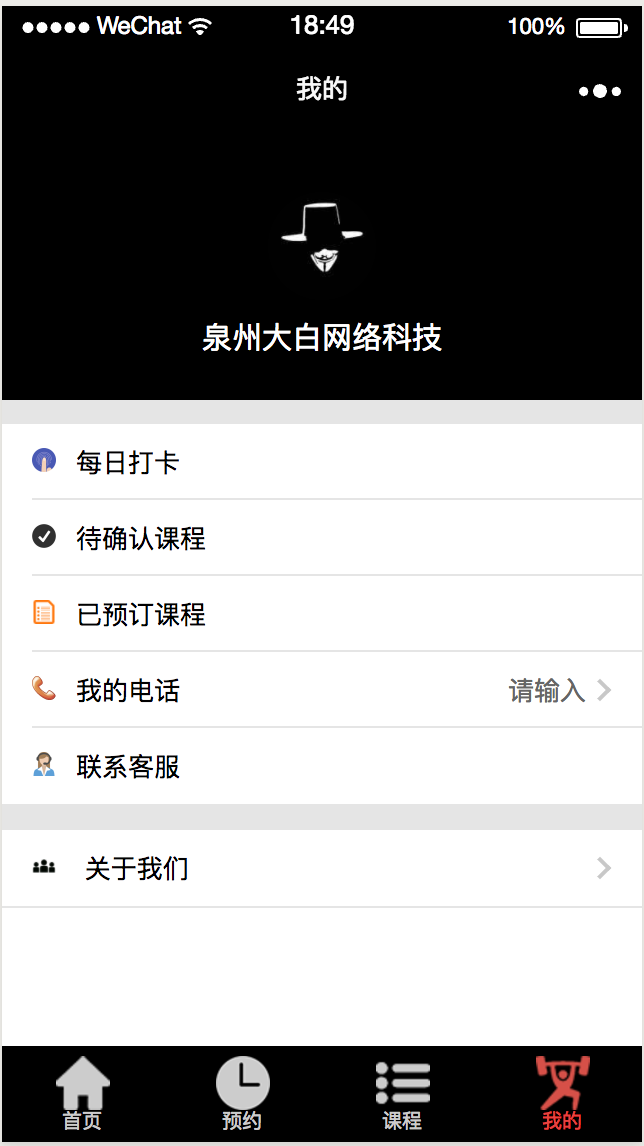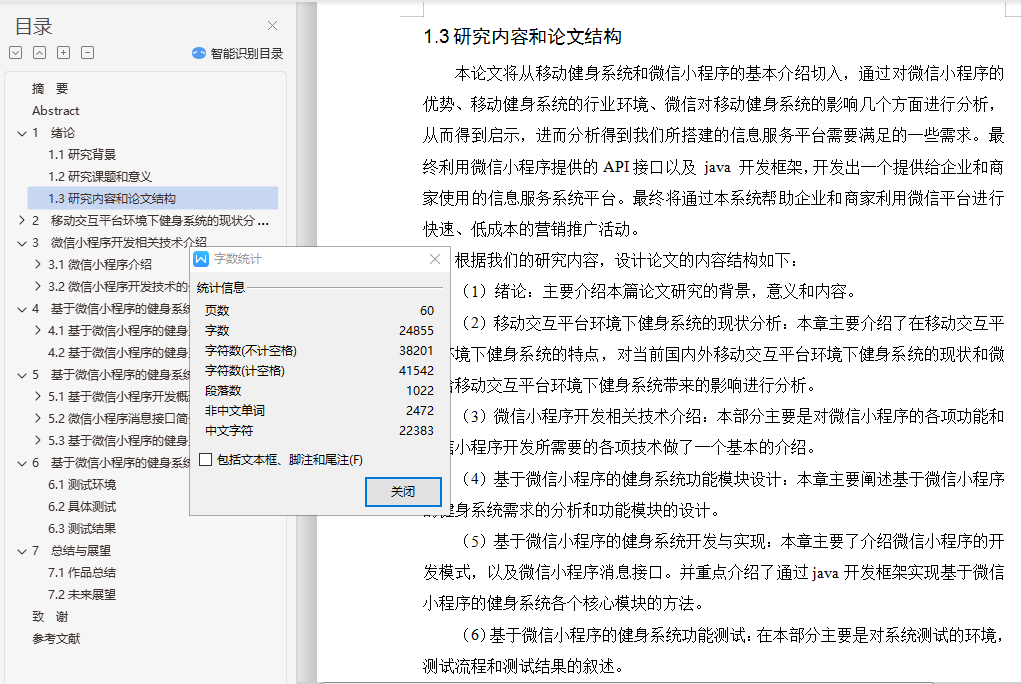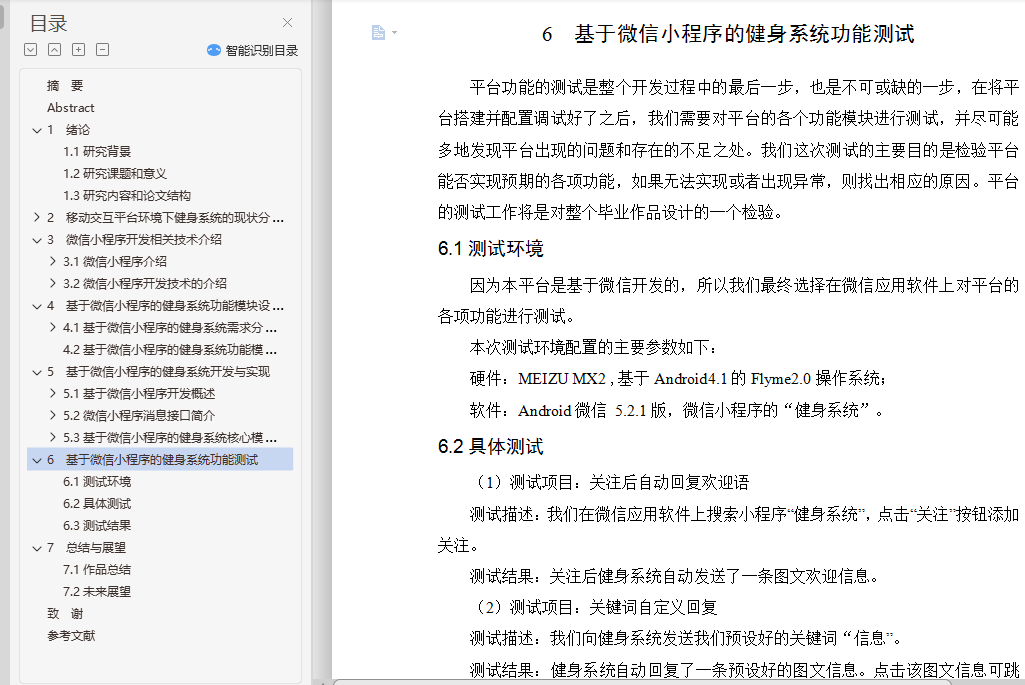摘 要
传统健身行业,主要是通过健身房办卡形式来维系会员,发放传单来进行拓客,会员粘性差,对会员后期没有进行实时跟踪,无法调查会员顾客满意度,难以形成口碑以及回头客,管理上也无法实现信息化。而微信小程序,实现线上线下的连接,符合健身行业的拓客引流路径。小程序系统定制开发,通过物联网互联网搭建智能健身体系,打造“店面一目了然,预约一键解决,数据一应俱全,社交一呼百应,购买一步到位”的全新健身体验。微信小程序逐渐强大,使用的行业也越来越多,微信小程序用户数量增长速度更是势不可挡。目前的市场热点来看,国人健身意识越发强烈,各大健身房如雨后春笋般冒出。而运动健身行业小程序能够为商家带来红利的基础之上,又能做好的用户体验去够吸引用户的注意。微信小程序连接线上线下的逻辑设定,与健身行业线上线下融合的大方向不谋而合,上述以乐存科技开发的微信小程序健身行业模板为例,大致分析了健身行业中微信小程序的具体作用,当然这些功能只是一小部分,为了满足更多用户的不同需求,还在继续研发各类型的小程序,实现的功能也在不断加强。
正是在健身系统不断的调整和更新中,本次设计基于移动交互平台环境下健身系统的特点、现状以及微信带来的影响,介绍了当前微信公共平台的各种功能,阐述了利用微信小程序搭建健身系统的设计思路,并提出了相应的技术解决方案。在微信小程序的开发模式下,采用了Javascript,HTML,CSS,JAVA 等编程语言实现了健身系统,并满足了商家在微信平台上营销的基本需求。
关键词:微信,小程序,移动交互平台,健身系统
Abstract
Traditional fitness industry, mainly through the gym card to maintain the form of membership, the distribution of leaflets to carry out patrons, the membership viscosity is poor, the late members did not carry out real-time follow-up, unable to investigate the customer satisfaction of members, Difficult to form word-of-mouth and return customers, management can not achieve information. WeChat Mini Program, the realization of online and offline connection, in line with the fitness industry of the Pioneer drainage path. Mini Programs system customized development, through the Internet of things to build an intelligent fitness system, to create a "storefront at a glance, booking a button to solve, data available, social response, buy a step in place" of the new fitness experience. WeChat Xiao Cheng Order gradually strong, the use of more and more industries, the number of WeChat Mini Program users growth rate is unstoppable. Current market hot spot, the Chinese fitness consciousness is more and more strong, the big gymnasium is springing up like bamboo shoots. And the sports fitness industry Mini Programs can bring dividends to businesses on the basis, but also can do a good user experience to attract the attention of users. WeChat Mini Program connects the logical settings between online and offline, and coincides with the general direction of integration between online and offline in the fitness industry. The above-mentioned WeChat Mini Program fitness industry template developed by Lecun Technology is taken as an example. General analysis of the specific role of WeChat Mini Program in the fitness industry, of course These functions are only a small part, in order to meet the different needs of more users, are continuing to develop various types of Mini Programs, the realization of the functions are also constantly strengthening.
It is in the continuous adjustment and update of the fitness system, this design based on the mobile interactive platform environment of the fitness system characteristics, the status quo and the impact of WeChat, introduced the various functions of the current WeChat public platform. This paper expounds the design idea of using WeChat Mini Program to build the fitness system, and puts forward the corresponding technical solution. Under the development mode of WeChat Mini Program, the fitness system is realized by using Javascript,HTML,CSS,JAVA and other programming languages, and the basic marketing needs of merchants on WeChat platform are satisfied.
Key words: WeChat, Mini Programs, mobile interactive platform, fitness system
目 录
摘 要 I
Abstract II
目 录 V
1 绪论 1
1.1研究背景 1
1.2研究课题和意义 2
1.3研究内容和论文结构 3
2 移动交互平台环境下健身系统的现状分析 4
2.1移动交互平台环境下健身系统的特点 4
2.2当前国内外移动交互平台环境下健身系统的现状 7
2.3微信给移动交互平台环境下健身系统带来的影响 8
3 微信小程序开发相关技术介绍 11
3.1微信小程序介绍 11
3.1.1微信介绍 11
3.1.2微信小程序简介 12
3.1.3微信小程序基本功能 13
3.1.4微信小程序高级功能 14
3.2微信小程序开发技术的介绍 15
3.2.1java 15
3.2.2Javascript 15
3.2.3XML 16
3.2.4HTML5 17
4 基于微信小程序的健身系统功能模块设计 18
4.1基于微信小程序的健身系统需求分析 18
4.1.1平台用户的功能需求 18
4.1.2平台商家的功能需求 19
4.2基于微信小程序的健身系统功能模块设计 20
5 基于微信小程序的健身系统开发与实现 21
5.1基于微信小程序开发概述 21
5.1.1微信小程序开发模式的数据交互方式 21
5.1.2微信小程序开发模式的接口 22
5.2微信小程序消息接口简介 23
5.2.1消息推送 23
5.2.2消息回复 25
5.3基于微信小程序的健身系统核心模块的实现 27
5.3.1基于java框架开发 27
5.3.2代码目录结构 28
5.3.3自动回复需求的实现 29
5.3.4小程序管理功能 30
5.3.5微信用户中心 30
5.3.6关注欢迎语 30
5.3.7自定义回复 31
5.3.8智能聊天 34
5.3.9建议意见留言 34
5.3.10会员卡 36
5.3.11自定义菜单 41
5.3.12融合第三方功能扩展 44
6 基于微信小程序的健身系统功能测试 47
6.1测试环境 47
6.2具体测试 47
6.3测试结果 49
7 总结与展望 50
7.1作品总结 50
7.2未来展望 50
致 谢 52
参考文献 53

